I won’t go into the details of what happened here. If you’re curious, you can read my comments on their Facebook page. My preference is not to call out other organizations in public, but on occasion some things need to be said. To their credit, they could have deleted my critique as they did my original comments, but they allowed it to remain, suggesting that they are at least open to criticism.
The point here is that the Life Film Festival wasn’t just a life-affirming festival. It had a strong religious orientation, something I didn’t realize when I submitted our short. That of itself is not necessarily a bad thing. You would think that a religious-minded festival would be more concerned about treating its participants with consideration than other festivals, but that festival was the one where my team and I felt the most manipulated.
The girl who ran the festival went to my church, and because of what happened, I was too upset to attend church for a few weeks.
The triumph of Death – Valdes Leal, 1672
As I’ve mentioned before, the worst experiences of my life have come from religious people and from religious-like peddlers of idealism. And yet, some of my best friends and my noblest aspirations also come from the church. It’s complicated, you know.
Before going further, I should clarify my intentions. This is not meant to be a raging polemic against religion in the manner of Richard Dawkins and Sam Harris.
(Of the recent outspoken atheists to take the stage, Christopher Hitchens was the one I found most agreeable. His work suggests a healthy appreciation for awe and uncertainty, and I suspect that his arguments against God might be mere channelled condemnations of religion gone bad. In any case, I imagine I would have enjoyed sharing a few beers with him, which is not something I can imagine about his colleagues. Pity then that he is no longer with us. Another time perhaps.)
Nor do I aim to discuss church in the effusive language of an evangelist. I go to church on occasion. Sometimes I find it encouraging. Other times I am left wondering why it is so and not otherwise.
I approach the topic with enough humility to recognize that some of the things that frustrate me about church might be due to my own shortcomings, but sometimes a problem is institutional in nature and not specific to an individual. From wherever a problem may come, it cannot be corrected unless it is first identified, and so it can be helpful to acknowledge the obstacles that come with the territory rather than to act as if they do not exist.
The tone I’m aiming for is similar to that of the seminal book The Varieties of Religious Experience: A Study in Human Nature written by Harvard psychologist William James back in 1902. In that book James refuses to reduce religion to the by-product of sublimated sexuality or mental illness. Rather, James argues that while religion has occasionally caused problems it is a subject with its own intrinsic value that significantly affects the human experience, often for the better.
The Annunciation – Fra Angelico, c. 1437-1446
To extrapolate William James into today’s preoccupations, we can acknowledge that a desire for profit might have motivated the creation of the iPhone, but the phone has inherent value as an elegant communication tool that transcends the profit it produces for Apple. Of course, religion is a more significant matter than the phone one chooses, but anthropologists of the future might have difficulty discerning as much from the recorded history found on social media relics.
To quote William James, “No one organism can possibly yield to its owner the whole body of truth. Few of us are not in some way infirm or diseased, and our very infirmities help us unexpectedly.” That quote reminds us of the potential for fallibility, in ourselves and in our religious institutions, but how can fallibility be helpful? Perhaps we will find an answer in our discussion to come.
For now, let us proceed with a different question.
If we assume that Christianity is true, in what ways would we expect an ideal church to be different from other assemblies of people? There is nothing about Christianity that suggests the church as a whole should be smarter, more attractive, or more affluent than the rest of society, but it should be capable of more goodness.
According to Galations 5:22-23: “But the fruit of the Spirit is love, joy, peace, forbearance, kindness, goodness, faithfulness, gentleness and self-control.” (NIV) In other words, those who are guided by the spirit of God will grow in character. Other passages indicate that a body of believers is said to have a sort of spiritual amplifying effect. For example, Matthew 18:20 says, “For where two or three gather in my name, there am I with them.” (NIV) Then there are all those passages that compare the church to a human body. Once again the whole is greater than the sum of the parts.
OK, so the ideal church should amplify goodness in noticeable ways: Its members are theoretically attuned to the Creator of a moral universe, and in fellowship they grow stronger and have a better sense of their unique purposes within that universe. That doesn’t sound so bad, but is that what we find when we step away from the ideal and into the realm of messy reality?
It does not always seem that way.
I grew up in a restrictive fundamentalist church, the kind of place that frowned on going to the movies, playing cards, and drinking alcohol. While there are no definitive references to movies in the Bible, there are numerous references to wine, but my former church believed that wine actually meant grape juice in ancient times. That is an awkward position to maintain. For one thing, much of the Bible was originally written in Ancient Greek, and the early Greeks certainly did not mean grape juice when they mentioned wine in their writings.
The Disrobing of Christ – El Greco, 1577-1579
Then there are verses like Matthew 11:19: “The Son of Man came eating and drinking, and they say, ‘Here is a glutton and a drunkard, a friend of tax collectors and sinners.’” (NIV) That verse sets up a clear correlation: Christ ate and some people called him a glutton; Christ drank and some people called him a drunkard.”
Not to take anything away from the delicious oak-infused flavors of Welch’s Grape Juice, but I have never heard anyone called a drunkard after imbibing too much Welch.
Still, I can understand the church’s inclination to protect its members from potential corrupting influences. Alcohol, if abused, can have devastating consequences, so can sex. There is risk even in watching movies, as many of them are conduits for corrosive ideas, and only a fool would deny the escalating increase of sex and violence in the films being produced now.
Did this protective mindset produce people of stronger character though? That is hard to say. Perhaps in some cases it did, preventing members from being led astray, but it did not produce young people who would defend me when I was picked on and excluded in school, or even at church events. If I ever have a son, I will teach him to do otherwise.
In a similar vein, I felt out of place in school, and I felt only marginally less out of place in church. There is some social pressure to be friendly to others in church, and that made church more bearable, but those who offered friendliness in church did not extend that same friendliness in school. There, social status is not awarded for displays of inclusive friendliness, so there is less incentive to sustain a veneer of it.
Not that I was much different. I was not considered one of the most popular kids back then, but nor was I on the lowest rung of my school’s caste system. I did everything I could to avoid being associated with the untouchables, lest I give others more reason to exclude me. I regret that. High school is a little microcosm of the world at large, is it not?
Madonna of the Meadow – Raphael, 1505
The teenage years are challenging years for most people, so I am not looking to place blame on others. Is it possible, though, that the church’s theology influenced the actions or inactions of the people who significantly affected my life during those years.
My apologies to those who wish to avoid theology, but I don’t know how to proceed without discussing it. A church is, at any rate, a religious group with certain commonly held beliefs. Those beliefs will vary slightly or significantly from one church to another, and those beliefs will influence how the church members act in the world at large.
A particularly unhelpful belief of that church and many like it is that faith is sort of like an on-off switch. That theology goes something like this: Before someone says the right prayer he or she is damned to endure an eternity of burning in hell. After saying the prayer, he or she is guaranteed heavenly bliss, regardless of what kinds of choices are made after the prayer. Once the prayer is said, keeping the faith is simply about following a list of dos and don’ts to build up enough rewards so that heaven is more comfortable.
That off-on theology is in keeping with the way machines work in our industrial world, but that is not how faith is described in the Scriptures. There, the emphasis is more organic. Christ’s parable of the sower isn’t so much about the seed hitting the ground. The bigger issue is whether the seed will take root and grow. Similarly we are instructed to bear fruit, and fruit doesn’t sprout overnight. It happens over time when the right conditions are in place. Character is like that.
Book of Kells, Folio 32v – c. 800
Christ is also described as a fountain of water and the bread of life. The thing about food and water is that we have to keep eating and drinking to stay alive. Why does this distinction matter?
If you believe in off/on theology, the most important thing that you can do for others is to get them to say the right prayer. It doesn’t matter why they say that prayer, so you can scare them into saying it or offer incentives, but once they say it then you should probably move on to the next person who has yet to say it. After all, the more time you spend lingering with one person, the less time you have to persuade other hell-bound souls to say the prayer before it is too late.
While searching for others who might be receptive to the prayer, it is recommended that you adhere to a list of dos and don’ts. The better you are at following that list, the better your rewards will be in the afterlife.
The Crucifixion of Christ – Tintoretto, 1568
Usually defending someone against a bully is not on the checklist, but you know what is almost guaranteed to be there? Helping the children in Africa, and what could be better than helping those poor, precious children in Africa?
That kind of thinking drives me crazy, but everyone seems to buy into it. Even Madonna. (In this case, the reference is to the singer and not to the mother of God. It is unclear how the holy mother feels about the Africa question.)
Let me clarify: Working to help the less fortunate is admirable, and the people of Africa have faced much suffering in recent years and can benefit from aid, as can other developing countries. If you are a decent person who is involved in your community and have the resources to improve the situation in Africa, or places like it, then go for it.
So many people, though, will send money to Africa INSTEAD of being considerate to those around them. Africa feels exotic, and it lets people buy into the idea that they are making a difference, that they are doing something positive. These types tend to write a check or go on a do-gooder tour and then proceed to treat those closest to them in indifferent or callous ways for weeks, months, and years.
Misguided people, do you not realize that the consequences of your cruelties to those closest to you will do far more harm than any petty niceties that you momentarily offer needy strangers in a far away land?
There is a character in Charles Dickens’ book Bleak House who is like that. Her name is Mrs. Jellyby, and she likes to ramble about her mission to Borrioboola-Gha, Africa, but she neglects her family entirely, much to their misfortune.
First serial cover for Bleak House – 1852
For a real-life alternative, let us look to Jason Russell. You might not recognize the name, but you probably remember the hipster-friendly KONY 2012 outreach he organized through his Invisible Children charity. A few weeks after the KONY outreach gained traction, he was filmed running around naked while swearing and acting like a mad man. You can find the video on YouTube if you are so inclined, but the video itself is not suitable for The nsavides Blog.
After the breakdown, some sites began investigating the Invisible Children charity and discovered that less than 32% of the $1 million + raised by the KONY campaign went to direct action. It seems the outreach was profiting handsomely from the help-Africa impulses of others. While it would not have been as glamorous, I suspect that Jason Russell could have done more to make the world a better place by first conquering his own demons before trying to conquer those of Africa.
One last thing about Africa. Why is it that religious communities can easily imagine that God would call someone to ministry in Africa but not to design more comfortable chairs or to be a personable manager at the local shopping mall?
In addition to correcting the injustices in Africa, why wouldn’t a benevolent God want his children to sit in comfort or to have friendly supervisors? Is this omnipotent God only capable of solving one problem at a time, and must all of His people be dedicated to that one problem in order for it to be solved? Surely God is more versatile than that.
Ecstasy of Saint Teresa – Giovanni Lorenzo Bernini, c. 1647 – 1652
Moral of the story: Don’t be a Mrs. Jellyby or a Jason Russell. Charity should start at home. That’s enough of that side tangent though.
Back to off/no theology. I’m not trying to be facetious in my descriptions. That is how some churches seem to operate. It’s why some preachers resort to unnatural diction and fear mongering.
One night my mom asked me to come with her to attend a service with that kind of preacher. The night I attended was teen night, which means that teenagers around town were invited to the church for a night of free pizza and games. As payment, the teenagers had to sit through one sermon. Just one. That’s not asking so much, not when free pizza is involved, right?!
The guest speaker started in a friendly manner, but his tone began to change as he spoke of hell. He started to yell. No one would tolerate that tone in a normal conversation, but in some church settings it is acceptable. In response, one of the teens got up and left. The church leaders positioned deacons to guard the doors after he left. I was happy he escaped. I would have joined him, but that would have embarrassed my mom.
An alternative to the off/on theology involves seeing salvation as an on-going process. It goes something like this: The Spirit of God is whispering to us in an indiscernible language, from when we are born, nudging us toward union with the divine, toward harmony within a moral universe, toward our ultimate destinies, but the other side is there too, trying to lead us away from that destiny. Each step toward union or toward rebellion shapes who we become, and the most important day of our lives is the day we die when we face the consequences of our choices.
Winter landscape – Casper David Friedrich, 1811
In this arrangement, the emphasis is on the moment-by-moment fellowship with, or search for, the Spirit of God, and so showing others how to gracefully navigate through the difficulties they are facing, or helping them get unstuck from past trauma, is more important than ensuring that they say the right prayer.
It’s true, Christian theology maintains that Christ’s sacrifice made union with God possible. It is just that some Christian traditions place more emphasis on the importance of knowing the name than others.
To illustrate by way of example, here in the United States we have certain freedoms because brave men and women died fighting for them. You do not need to know the names of these people to recognize the gift you’ve been given.
Furthermore, you can choose to squander that gift by enslaving yourself to cat videos and other questionable pursuits, or you can choose to take full advantage of the opportunities before you and strive to make something of yourself. Learning about leaders like George Washington and Abraham Lincoln might help you appreciate your freedoms, but that is not absolutely necessary for you to be free.
C.S. Lewis’s Chronicles of Narnia are in keeping with this tradition. Aslan tells the children throughout the series that he is known by many names, but the important thing is to know how to follow after him when he comes. Interestingly enough, Christ himself did not beg his followers to remember his name at all costs. Instead, he tells them to “become like children” if they wish to enter the kingdom of heaven. To phrase it in a more modern way we might say, “remember the innocence you once knew before you were corrupted into what you’ve become if you want to enjoy union with God.”
The Concert – Marc Chagall, 1957
In this cosmology, hell is more about the separation from God than about physical anguish. As C. S. Lewis explains, “the doors of hell are locked from the inside.” The idea here is that someone chooses to move away from fellowship for one reason or another. Gollum makes that choice after being consumed with desire for the one ring and for the power it brings him. Annie Collins-Nielsen in What Dreams May Come makes that choice after being overwhelmed with grief for the loss of someone she loved.
Let’s take a moment to elaborate on that. Gollum’s descent into a hellish existence is one that we can readily understand; The thirst for power is something that we recognize as having a corrupting influence. Why might excessive grief lead to hell, though? Isn’t it appropriate to mourn the loss of our loved ones?
It is, but even appropriate grief can sour into something ugly if it becomes all consuming and distracts attention from a relationship with God. In the film, Annie is so distraught by loss that she would rather live alone in a twisted, hellish world than live in relationship with others and face the vulnerability and potential heartache that comes with doing so.
Garden of Earthly Delights, detail – Hieronymus Bosch, c. 1480 – 1505
Let me give another example in context of religion that might help to get the idea across. Have you ever been to a church service where you felt out of place? It happens to me more than I care to admit, and it is a terrible feeling. I think to myself, “I don’t fit in even here, even in a place where friendliness is encouraged and where fellowship has the utmost significance? To hell with this. I am never coming back.”
Sometimes I will stay away from church for weeks when that happens. Sometimes though the positive influence of a friend or a loved one will bring me back sooner, will give me reason to try again. Come to think of it, that’s not all that different from What Dreams May Come.
Without delving into all the sectarian differences between one Christian denomination and another, we can understand some of the key variations by simply understanding the difference between the off/on theology mentioned earlier and the relationship-oriented theology that we’re discussing now.
Obviously I have a preference for churches that are relationship oriented, but those can have their shortcomings too. The focus there sometimes becomes about encouraging community at all costs, to the point where services become substance-free, entertainment-driven comforts.
It’s partly a generational thing, a macrocosm of shifts in parenting styles.
The World-War-II generation faced some difficult things, and many of them rose to the challenges of their times, leading historians like Tom Brokaw to dub them the Greatest Generation. No doubt influenced by the difficulties faced by their parents, that generation was forged in households with strict discipline.
When soldiers returned from the war, they wanted to enjoy a more comfortable existence. This is understandable, considering the horrors that were enduring during battle. Homes were purchased in the suburbs as were automobiles and swimming pools, and so the consumer culture of the 1950s came into prominence.
Along with a desire to provide more material comforts grew the inclination to be more permissive as parents. This mentality was exemplified by people like Dr. Benjamin Spock whose bestselling book Baby and Childcare advocated a softer, less authoritarian approach to parenting. Again, parents remembered past difficulties, in this case their own strict upbringings, and wanted to offer something better for their children.
Similarly, the upcoming generation of church leaders remembered the sometimes unpleasant, overbearing services that result from off/on theology and reacted against that.
Consequently, modern relationship-oriented churches are less likely to feature screaming ministers and hellfire-and-brimstone sermons, but they are also less inclined to take a stand on important issues. I have been to a few modern churches, and I don’t remember ever hearing sermons addressing pornography, abortion, digital piracy, living within ones means, the importance of a good work ethic, or civility in public discourse.
The Third of May 1808 – Francisco Goya, 1814
These are big problems our society faces, but modern churches, like modern parents, prefer to avoid confrontation in the name of community, and so my generation has grown up entitled, bratty, and not very tough. I’m not saying that churches should take on every difficult issue out there. Sometimes it is wise to leave some things unsaid, and there is a time and a place for everything, but if a pastor never says anything that anyone might find disagreeable, then there is no leadership there.
“You guys, we really need to help those orphans in Africa.” Yes. It’s true, but we need other things too, and a spine is needed to get them.
It is telling that one of the best cases I’ve read against porn comes not from a church sermon but from this blog post on the Art of Manliness. Similarly, the best quote I’ve discovered against digital piracy doesn’t come from a minister but from Steve Jobs who once said, “From the earliest days of Apple I realized that we thrived when we created intellectual property. If people copied or stole our software we’d be out of business. If it weren’t protected there’d be no incentive for us to make new software or product designs. If protection of intellectual property begins to disappear, creative companies will disappear or never get started. But there’s a simpler reason: it’s wrong to steal. It hurts other people, and it hurts your own character.”
To the permissive churches who only want to discuss love and community I ask, if a friend was about to overdose on heroin, how loving would it be to accept him for who he is and watch in silence as he dies? I wouldn’t want friends like that.
In Rebel Without a Cause, James Dean pleads with his dad to “stand up for me.” I want a church that will stand up for me and my generation. Our society is dying. The pornographers, the phonies, and the bureaucrats are winning. We need to find a new moral clarity or our civilization will not long endure. In the colonial days, moral clarity started in the churches and then spread to the statesmen and then the people at large. That led to the Declaration of Independence. It can happen again.
Lamentation of Christ – Giotto, c. 1304 – 1306
Moral clarity is a tricky thing though. I will elaborate:
There is a common fallacy that assumes that the significance of the message is somehow related to the status of the person giving it. Celebrities, for example, are deemed to have value for one reason or another, and because of that value, their comments on topical matters become newsworthy regardless of how asinine the comments may be.
Dennis Rodman is a skilled basketball player, but his background in no way suggests that he is qualified to assess the risk posed by North Korea after one meeting with the country’s leader. That did not prevent him from commenting. Nor did it prevent the media from covering his comments as if they were somehow significant.
While we will accept messages of questionable merit from those with higher status, we are hesitant to accept even deep, transformative insights from those who do not at least match our status in some way. Here are some examples of how that plays out, “She is too fat to know anything about relationships.” “I have more money and more Twitter followers than he does.” “He isn’t enough of an intellectual.” “I’m cooler than she is.” And so on.
These examples might seem petty, but they pose real barriers to those trying to influence the behavior of others. A wide range of people from all kinds of socioeconomic backgrounds go to church, so the difference in status can pose substantial resistance to someone’s participation within the community or acceptance of any given message.
Creation of Adam – Michaelangelo Buonaroti, 1511
As I mentioned earlier, an ideal church should amplify goodness, but reality tends to be less than ideal. Everyone has shortcomings and struggles, even those who go to church, but that is quickly forgotten when perfection is expected. Think of the pastor who serves his congregation for years but commits adultery in a moment of weakness. He might have spoken for years with moral clarity, but with one bad decision he obliterates his status as a spiritual leader and calls to question the moral clarity of anything he ever said.
That’s not to say that it is fair, just that it happens. We can still recognize the value in the sentiments expressed in the Declaration of Independence, even though its author, Thomas Jefferson, owned slaved. Why should it be otherwise with church?
I suppose now would be an appropriate time to confess that I had a few too many drinks last night and masterbated before going to sleep. The purpose of that was to give myself a compelling reason not to finish writing this. I figured that would be a sufficient deterrent, since I cannot write honestly while trying to hide vices. I did not anticipate writing this paragraph though.
After some deliberation I have chosen to include this personal information because it feels like I should and because my honesty might be of some use to others who have experienced similar struggles.
While I spend much time writing about issues of character, I do not yet consider myself to be a good man. Someday I’d like to be, but there are still struggles, and I don’t always do the right thing. In my defense I will say that I was better at living virtuously until recent heartaches destabilized my world once again.
Not that I buy into astrology entirely, but Geminis are said to have heightened, but warring, spiritual and earthy sides, and that description could work as a short, makeshift bio for me. There’s a Biffy Clyro’s song “God & Satan” that relates. The song begins, “I talk to God as much as I talk to Satan ’cause I want to hear both sides.” All of us hear both sides, but we choose which side to heed, and it isn’t always the good side.
Michaelangelo Buonarroti – Jacopino del Conte, c. 1535
That said, it is a disservice to the faith to pretend that anyone who discusses religious matters has no shades of gray in his soul, but that is exactly what contemporary “Christian” art tends to do. Most Christian bookstore that I’ve visited don’t carry books like William Shakespeare’s The Merchant of Venice, Victor Hugo’s Les Misérables, or Fyodor Dostoyevsky’s The Brothers Karamazov but are filled with treacly sentiments and comforting images of Christ. That’s a tragedy.
Not only are these books some of the best pieces of literature that our civilization has ever produced, but they are rigorously Christian in outlook. The only problem is that these books also depict vice in detailed, sometimes troubling, ways and involve complexity and moral ambiguities. That is too unsettling to Christian communities who take solace in believing that people’s capacities for good and evil correlate exactly with their participation, or lack thereof, in the church.
For similar reasons Christian bookstores don’t tend to sell Martin Scorsese’s films or Johnny Cash’s records, although Christianity is an important aspect in the work of both artists. I’m generalizing here. I’ve read some brave and insightful Christian books and enjoyed hearing some contemporary Christian bands, but comfort seems to be the default preference for many of those bookstores, and that’s a problem.
It seems more realistic to acknowledge the close proximity of vice and virtue in matters of faith. In the history book The Age of Faith, Will & Ariel Durant recount stories of knights who would do horrible things before going on religious quests. Even the apostle Paul admits to having a conflicted nature: “For the good that I would I do not: but the evil which I would not, that I do.” Romans 7:19 (KJV) Pretending that it is otherwise just makes the faith seem less authentic.
I had an inclination that I should write this post, that it was something that was asked of me. That’s why I am writing, but I am wary of doing so. Rarely does listening to what is asked of me make my life easier. Lately it has brought lots of heartache, but I sense that it will lead to something good eventually if I can persist long enough. Time will tell.
Complicating matters, I also have a strong inclination not to write this post, to do anything possible to avoid it. That struggle of opposing inclinations is at the heart of any spiritual endeavor, it seems. In the words of the renowned philosopher Soren Kierkegaard, “faith overcometh the world by overcoming every instant the enemy within him.”
Skeletons Fighting Over a Pickled Herring – James Ensor, 1891
If such conflict rages in the heart of just one person, how much more potent must be the conflict to control the destiny of any given church?
There are spiritual forces at work in the world, for good and for ill, and I’ve experienced the influence of both. Sometimes I will have a sense to call a friend, and after calling I discover that he went through a difficult breakup or that she was robbed just a day ago. Other times though I will get information about the best way to manipulate someone. If my heart is not in the right place, then I am swayed by the dark side more easily, but being in fellowship with other good-hearted people helps me to stay the course.
Saturn Devouring His Son – Francisco Goya, 1819-1823
Demons and other servants of the dark lord surely realize the potential good that any church can do, so it stands to reason that they would have elaborate strategies in place for corrupting that potential. Building a church is a team effort, one that cannot prevail if enough of its members stand in the way of its destiny.
It’s sort of like the New York Knicks. If Carmelo Anthony is the only one scoring points, then the team will only get so far. I believed, and still believe, that the Knicks had a chance to win the championship this year if everyone had done what was asked of him, but everyone did not do what was asked. Some did the opposite of what was asked, disrupting the destiny at hand in various ways.
When that happens in regards to a church, the consequences can be much more severe than a lost championship. A better analogy might be a marriage. If one person is doing everything he or she can to make the relationship work, but the other person consistently obstructs those efforts, then a marriage can only last so long.
Sometimes even a flippant sexual joke in a moment when intimacy is needed can ruin everything. I’ve seen relationships crumble and churches falter for smaller reasons. Be vigilant with your heart. Your destiny and that of others may depend on it.
The Last Supper – Tintoretto, 1594
A few church communities have excluded or mocked me in scarring ways, but I still go to church on occasion. I still try to make things work. To quote from the Varieties of Religious Experience once again, I go “because the best fruits of religious experience are the best things that history has to show. They have always been esteemed so.”
I would like to be a good man someday. That would be an admirable thing to be, and maybe church will help me get there.
Even more compelling to me is that the people I know who have the happiest marriages are people of faith who are active participants of the churches they attend. Watching them I am reminded of what it looks like to live with joy and affection. I had forgotten.
It’s like that song from the Mountain Goats:
I used to live here
I used to live here
I used to live here
I used to live here
Sainte Chapelle, Paris. Photo crédit: Didier B
It takes me a little longer to write the kinds of posts I prefer to write, and sometimes my schedule gets complicated, so I can’t promise to have new posts available on a consistent schedule. That’s why I encourage you to sign up by email. You can do that by clicking here.
If you’re following along by email, you’ll know right away when I have a new post waiting for you. It is very easy to unsubscribe, and you won’t receive anything unrelated to my blog.
Lastly, if you appreciate my writing, why not write a comment or share the post with a friend? It would encourage me to keep sharing some of my heart with you.
As always, thanks for reading and God bless.

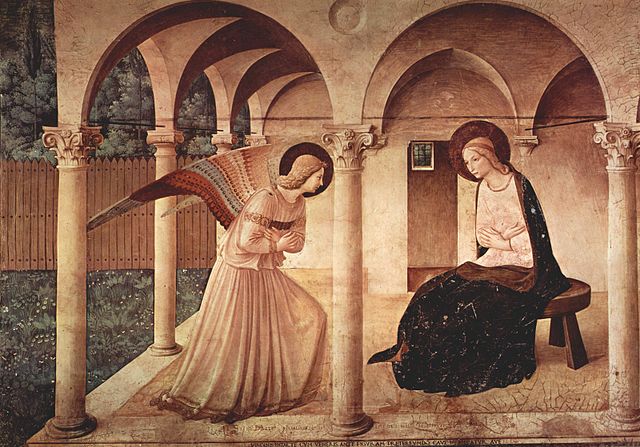
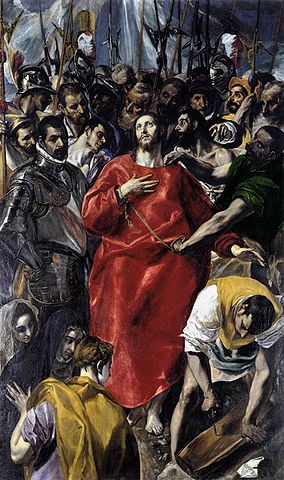

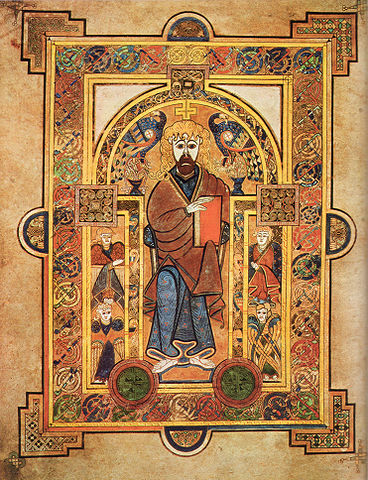
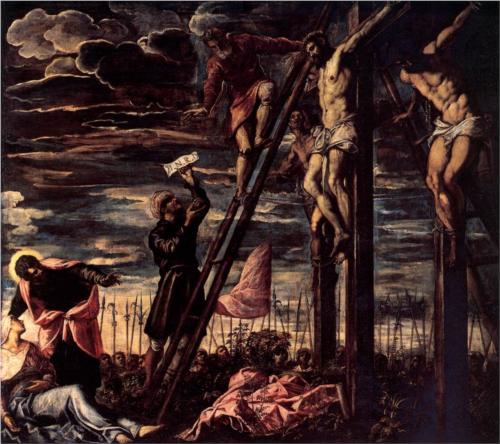



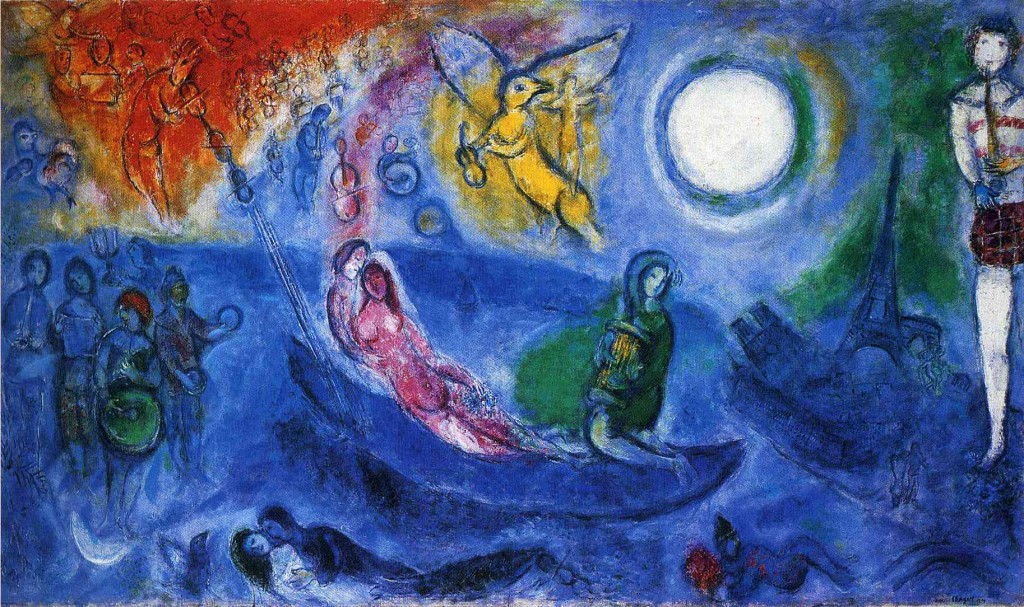
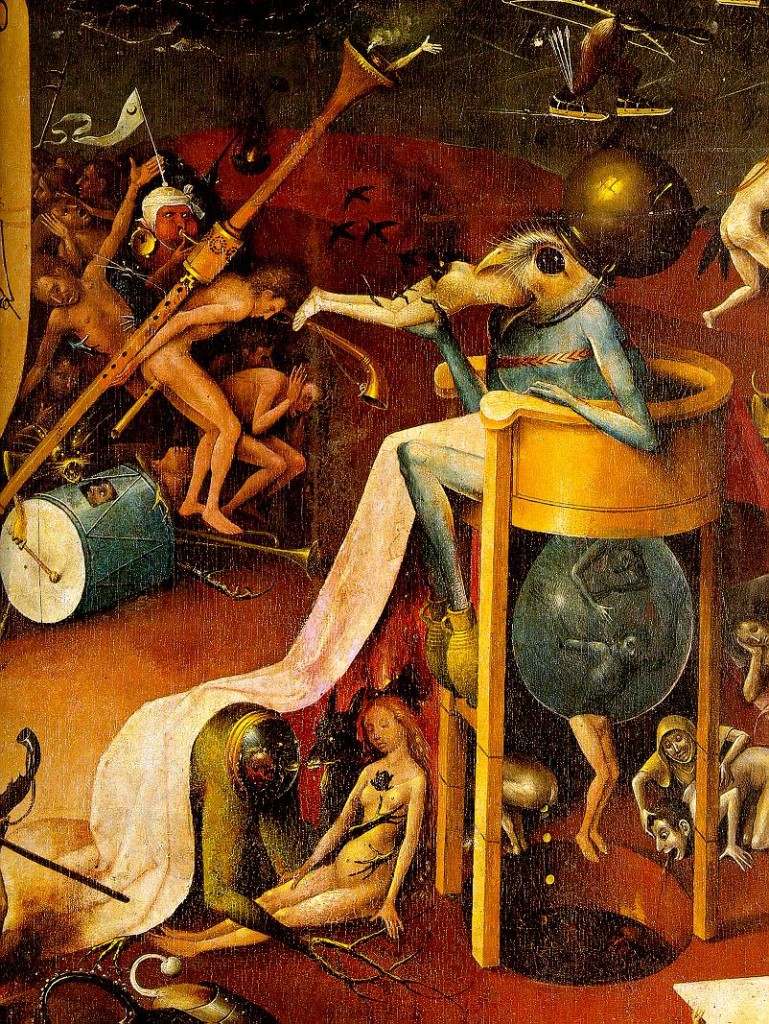
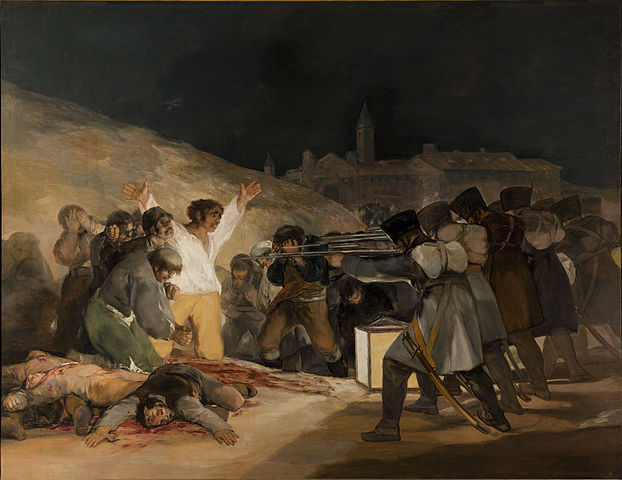
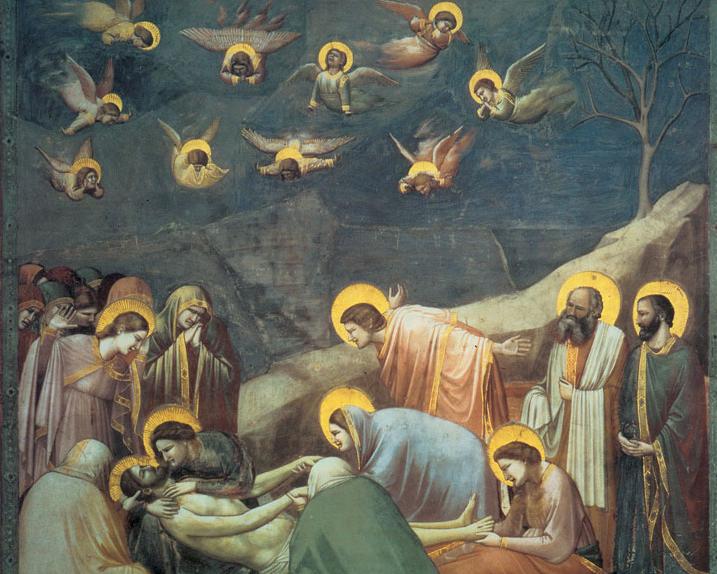
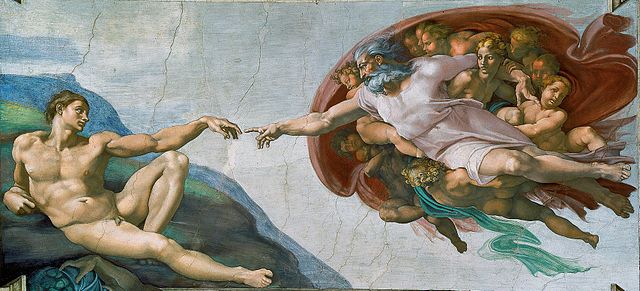



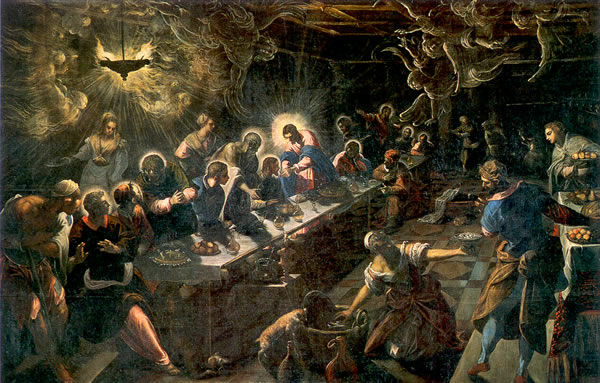

Nick, you’ve written a thoughtful and eloquent blog post, and the honesty and earnestness with which you approach your subject is admirable to say the least. I say “subject,” but that sounds too trivial. It is clear that this was not a mere writing prompt or intellectual exercise. The questions and concerns you have about religion seem to come from deep within you. Also evident–or so it seems to me–is that there is a great deal of pain and suffering behind your search for answers. I can sympathize with that. Though you and I may be on different paths to salvation, or self-fulfillment, or happiness, or whatever you want to call it, I am confident that you can take solace in this bit of scripture, as I have. I am sure you are already familiar with it, but here it is anyway: “Cease striving, and know that I am God.” For me it means to relax, to stop thinking and searching and working to better myself and to remember that I am already loved unconditionally, just as I am, and that same love loving me is in me and is me and will always be. If I am able to remember that, my questions don’t seem so pressing anymore and the wounds behind those questions disappear, if only temporarily. You are a good person, Nick. Believing that is half the battle.
Hi Brandon,
Thanks for taking the time to read and to share your thoughts. The verse you mentioned is also one that encourages me, and I agree that problems are often a matter of perspective. If our focus is in the right place, then so many other apparent problems will fade in significance.
God used this post to speak the truth, in love, into my life.
I find comfort in that each person has a different call on their life. This propels them to make decisions & say & do things I don’t understand & don’t need to understand -or judge them for. Sure there are things believers should all be doing like caring for orphans & widows, visiting people in prison, yes even being kind to family when they are not lovable or kind to us….like the Word says….but my expectations of others crumble to the ground when I realize their journey in life is so different than mine. In short as long as a person is in a one-on-one relationship with Jesus & being obedient to Jesus (His Word, His leading in their life) to the best of their human abilities, my opinion is that is all one can ask of them. God takes care of the rest. He matures us & our faith; what pride to think we mature ourselves. If the focus is on Jesus & a personal relationship with Jesus as opposed to a church or the actions of a church, a believer will find much more contentment. What I have described here is what has brought me joy in this life. I remove my own expectations from others & what they should be or do.